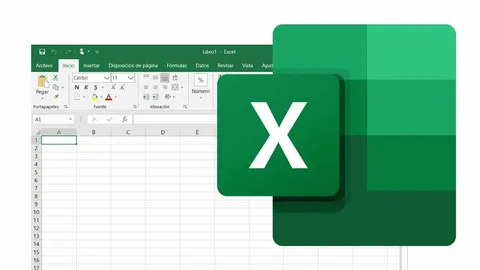Smartsheet and Airtable are popular tools for managing projects, organizing data, and streamlining workflows. Their user-friendly interfaces and versatile features make them attractive options for small to medium-sized businesses.
However, as businesses grow and their operations become more complex, the limitations of these platforms can hinder efficiency and scalability.
Let’s explore some of the key challenges growing businesses face with Smartsheet and Airtable and why a custom tool might be the better solution.
Limited Automation Capabilities
Automation is critical for improving efficiency and reducing repetitive manual tasks. While both Smartsheet and Airtable offer automation features, they are often limited in scope and flexibility. For instance:
- Smartsheet: The platform’s automation is confined to basic workflows like sending notifications, updating rows, or setting reminders. Customizing advanced automation or integrating with third-party tools for end-to-end processes can be cumbersome and require workarounds.
- Airtable: Though it allows users to set up triggers and actions through its “Automations” feature, the functionality is still basic compared to what many growing businesses require. Complex, multi-step workflows often exceed the capabilities of the built-in automation.
As businesses scale, their automation needs grow exponentially. Prebuilt automation tools often fail to meet these demands, forcing businesses to rely on manual processes or external solutions.
Limited Customization Options
Every business has unique processes, goals, and workflows. While Smartsheet and Airtable provide customizable templates and layouts, they are inherently designed for broad use cases, which can limit their ability to address specific business needs:
- Smartsheet: Customization is limited to predefined structures like sheets, dashboards, and reports. Businesses with niche or unconventional workflows may struggle to adapt Smartsheet to their needs without significant compromises.
- Airtable: While Airtable’s database-style design allows for some flexibility, complex workflows often require features that aren’t natively supported. Customization options are also limited when dealing with permissions, data visualization, or integrations with other business-critical systems.
For growing businesses, these limitations can result in inefficiencies and frustration, especially as workflows evolve and demand more tailored solutions.
Challenges Handling Complex Workflows
Smartsheet and Airtable are great for simple to moderately complex workflows, but they fall short when businesses need to manage intricate processes involving multiple teams, dependencies, or large-scale operations. Common pain points include:
- Data Interdependencies: Neither platform is well-equipped to handle highly interdependent data sets without creating overly complex and difficult-to-manage structures.
- Workflow Complexity: Advanced workflows that span multiple departments or require sophisticated approvals, dynamic logic, or real-time updates often push these platforms to their limits.
- Scalability Issues: As workflows grow, the platforms can become sluggish, and maintaining clarity in data organization becomes a challenge.
Limitations in Handling Large-Scale Data
Growing businesses generate and manage larger volumes of data over time. While Smartsheet and Airtable can handle moderate amounts of data, their performance can degrade when dealing with extensive data sets:
- Performance Bottlenecks: Both platforms experience lag or reduced functionality as the number of rows, records, or linked data increases.
- Data Limits: Smartsheet has a row limit of 20,000 per sheet, which may be restrictive for data-intensive operations. Airtable’s record limits per base and attachment storage limits can also become obstacles.
When data needs outgrow the capabilities of these platforms, businesses are often forced to either split their data into multiple files or migrate to more robust solutions.
Why Custom Tools Are the Solution
For growing businesses with unique needs, a custom-built software tool can address the limitations of Smartsheet and Airtable while providing long-term scalability and efficiency. Here’s how custom solutions can help:
- Tailored Automation
Custom tools can be designed to automate complex, multi-step workflows specific to your business processes. Whether it’s integrating with proprietary systems, triggering dynamic actions, or creating seamless end-to-end workflows, custom automation can save significant time and effort.
- Full Customization
A custom tool is built around your exact business needs. This means you can have:
- Custom data structures tailored to your workflows.
- Specific permission controls that align with your organization’s hierarchy.
- Bespoke dashboards and reporting tools that highlight the metrics and KPIs that matter most to your team.
- Scalability for Complex Workflows
Custom software can handle complex workflows and interdependencies with ease. It can be designed to:
- Support advanced logic and conditional workflows.
- Integrate seamlessly with other tools, databases, or APIs.
- Grow alongside your business without performance degradation.
- Robust Data Management
With a custom tool, you’re not constrained by predefined limits on data size or performance. The tool can be optimized to:
- Handle large-scale data efficiently.
- Offer advanced data analysis and visualization features.
- Maintain fast performance even with extensive records.
Conclusion
While Smartsheet and Airtable are excellent starting points for managing workflows and data, they have limitations that can hold back growing businesses. Limited automation, customization, and scalability are common pain points that can lead to inefficiencies and frustration.
Investing in a custom tool designed specifically for your business ensures that your software aligns with your unique needs, scales with your growth, and enhances your operational efficiency.
If you’re ready to move beyond the constraints of generic tools and explore a solution built for your success, contact us today to learn how we can help you develop a custom software tool tailored to your business.




